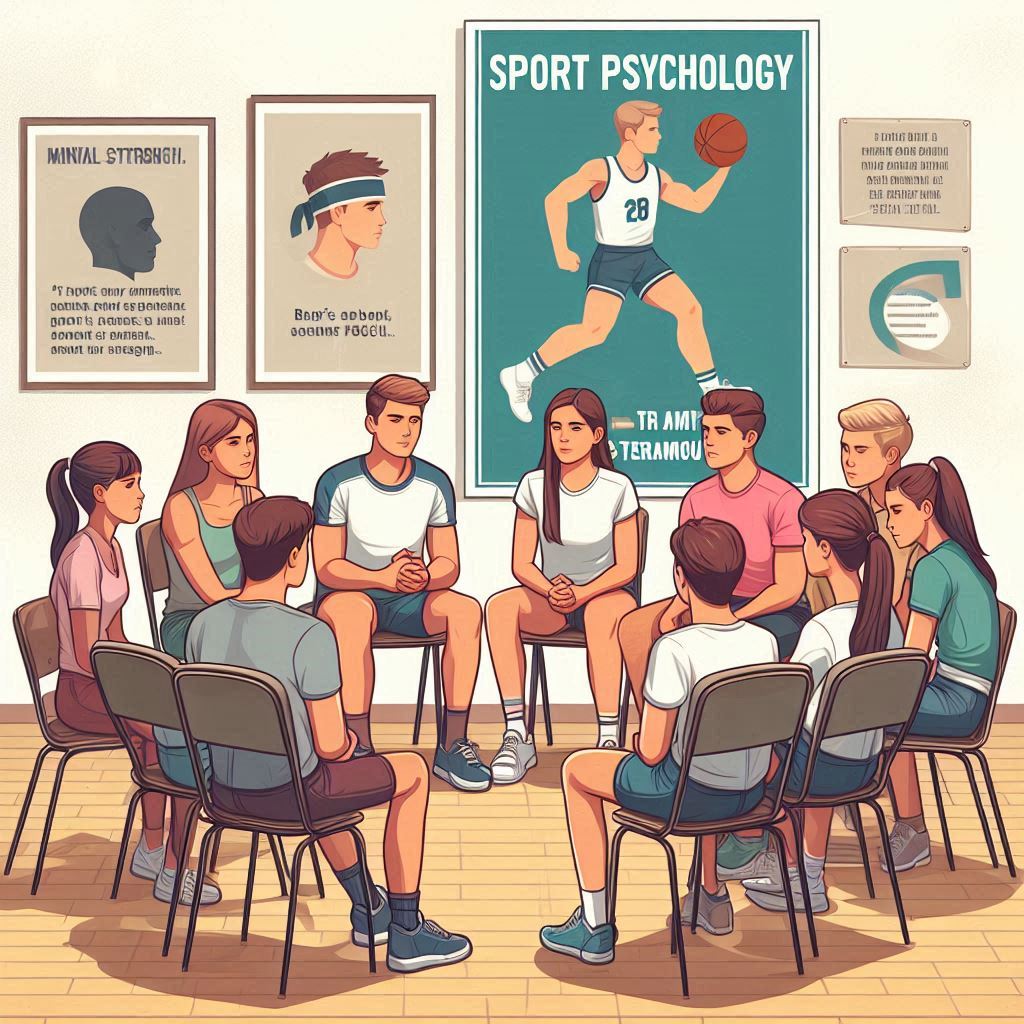Sport psychology is a growing field that combines mental strategies with physical performance, helping athletes achieve their full potential. Introducing a sport psychology curriculum in high schools can provide students with essential tools to manage stress, stay motivated, and improve their athletic performance. In this article, we explore why sport psychology is vital for high school athletes and how a well-designed curriculum can enhance both their mental health and sports performance.
What is Sport Psychology?
Sport psychology focuses on understanding how mental factors influence athletic performance and how participation in sports affects mental well-being. It involves strategies like goal-setting, visualization, mental resilience, and concentration, all of which help athletes improve performance while maintaining a healthy mindset.
For high school students, this can mean building confidence on and off the field, learning to handle pressure during competitions, and maintaining a balanced mental approach toward training.
Why High School Students Need Sport Psychology
High school athletes face a variety of challenges, from managing schoolwork and sports to handling pressure from peers, coaches, and themselves. A sport psychology curriculum helps them:
- Develop Mental Resilience: Learning how to cope with failure, bounce back from setbacks, and stay motivated.
- Enhance Focus: Staying concentrated during critical moments in a game or event can be the difference between winning and losing.
- Reduce Anxiety: Managing pre-game nerves and staying calm under pressure is crucial for maintaining peak performance.
- Improve Team Dynamics: Sport psychology can teach athletes how to communicate better with teammates and resolve conflicts, creating a healthier, more collaborative team environment.
Key Components of a Sport Psychology Curriculum for High School
When creating a sport psychology curriculum for high school, several essential elements should be included:
- Goal-Setting: Teaching students how to set realistic, measurable goals helps them track their progress and stay motivated. Goal-setting builds a sense of accomplishment, whether they’re aiming for personal bests or team victories.
- Visualization Techniques: Visualization involves mentally rehearsing a skill or situation before performing it. By practicing this technique, athletes can reduce anxiety, boost confidence, and increase the likelihood of success.
- Mindfulness and Relaxation: Incorporating mindfulness techniques helps athletes remain calm and focused during stressful situations. It also encourages body awareness and relaxation strategies, which can prevent burnout and fatigue.
- Confidence Building: Self-confidence is crucial for athletes. A sport psychology curriculum teaches students how to develop a positive mindset, handle criticism constructively, and maintain high self-esteem even when facing challenges.
- Stress Management: Learning effective stress management techniques, such as breathing exercises or progressive muscle relaxation, helps athletes perform well under pressure while keeping mental well-being in check.
- Teamwork and Communication: Successful teams are built on strong communication and collaboration. Teaching athletes how to work together, resolve conflicts, and support one another is vital for both team success and individual growth.
The Benefits of Introducing Sport Psychology in Schools
- Better Athletic Performance: Athletes who are mentally prepared perform better, have fewer distractions, and can handle pressure during competition.
- Improved Mental Health: Sport psychology isn’t just about winning games; it helps students develop healthy coping mechanisms, reducing stress and anxiety.
- Life Skills Development: Students learn valuable life skills such as goal-setting, time management, and emotional regulation—skills that benefit them long after they’ve left the playing field.
- Enhanced Academic Performance: Mentally resilient athletes often perform better in the classroom as well. They are more organized, disciplined, and better able to manage stress.
Conclusion: Building Stronger Athletes with Sport Psychology
Incorporating a sport psychology curriculum in high schools equips young athletes with the tools they need for success on and off the field. By teaching mental resilience, focus, and stress management, schools can help students enhance their athletic performance while supporting their overall mental well-being. As the field of sport psychology continues to grow, its importance in high school sports programs is undeniable.






